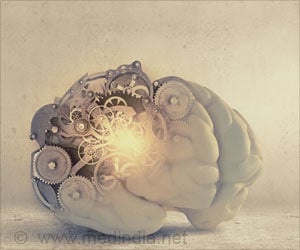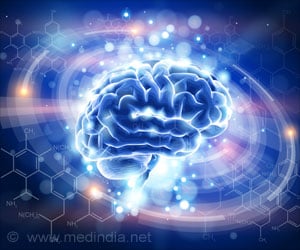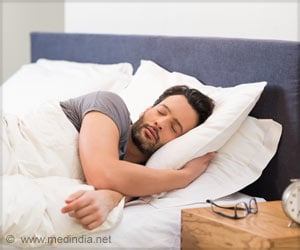Rocking helps to fall asleep faster and have a deep sleep. Rocking during sleep also reduces memory impairment. In mice, sleep is influenced by the effects of rocking on the vestibular system in the ear.
- Rocking helps to fall asleep faster and ensures good quality sleep, and also boosts memory
- Rocking could help treat patients suffering from insomnia and mood disorders
TOP INSIGHT
Rocking helps to fall asleep faster. It also induces good quality, deep, and uninterrupted sleep. Rocking during sleep also improves memory. In mice, sleep is influenced by the effects of rocking on the vestibular system in the ear.
Read More..
Human Study on Sleep
The study in humans focused on the effects of rocking on sleep. The study was led by Dr. Laurence Bayer and Prof. Sophie Schwartz, who work in the area of Basic Neurosciences and Sleep Medicine at the University of Geneva, Switzerland. The first author of the study was Dr. Aurore Perrault, a postdoc at the Swiss Center for Affective Sciences, University of Geneva, Switzerland. Initial studies revealed that continuous rocking during a 45-minute nap not only helped to fall asleep quickly, but also have a sound sleep. The present study focused on monitoring the effect of rocking on sleep and the corresponding brain waves throughout the night.Methods
- Sleep monitoring was carried out on 18 young adults by electroencephalography (EEG) for measuring the brain waves
- On the first night, the participants were allowed to become accustomed to the lab environment and the instrumentation
- On the second night, the participants slept on a gently rocking bed
- On the third night, the participants slept on an identical bed but which did not rock
- The participants fell asleep quicker on the rocking bed than in the stationary bed
- On the rocking bed, the participants experienced periods of rapid eye movement (REM) sleep more frequently, which is associated with dreaming. They also had a deep sleep and woke up far less during the night
Human Study on Memory
This study looked at how good quality sleep impacted on consolidation of memory.Methods
- The effect of sleep on memory consolidation was based on studying word pairs
- The accuracy of recalling the word pairs in an evening session was compared to the accuracy of recall the following morning after waking up
- The effect of rocking on brain oscillations during sleep was also evaluated
- The recall rate in the morning was much better when the participants slept on a rocking bed
- The rocking motion entrained specific brain oscillations associated with REM sleep, particularly slow oscillations and spindles
- The rocking motion synchronized the neural activity in a particular region of the brain, called the thalamo-cortical area, which plays a crucial role in both sleep and memory consolidation
Mice Study on Sleep
The study in mice was the first to explore whether rocking induces sleep in other species besides humans. The research was led by Prof. Paul Franken, who specializes in Sleep and Energy Homeostasis at the Center for Integrative Genomics, University of Lausanne, Switzerland. The first author of the study was Dr. Konstantinos Kompotis, a postdoc in Prof. Franken’s lab.Key Features of the Study
- The study utilized commercial reciprocating shakers for rocking the cages in which the mice slept
- The ideal rocking frequency for mice was found to be four times faster than that for humans
- Rocking made the mice fall asleep quicker and sleep longer, just like humans. However, there was no evidence that the mice slept more deeply
- The effect of rocking on sleep and its possible association with rhythmic stimulation of the vestibular system (responsible for maintaining balance and spatial orientation) was investigated in mice
- Mice having a non-functional vestibular system due to faulty otolithic organs within their ears, did not experience the beneficial effects of rocking while sleeping
Concluding Remarks
Bayer and Perrault indicate that the two studies “Provide new insights into the neurophysiological mechanisms underlying the effects of rocking stimulation on sleep.” These new approaches could be applied for patients suffering from insomnia and mood disorders, as well as for older people who often suffer from sleep disturbances and memory impairment. Importantly, the researchers point out that the present findings will pave the way for future studies to precisely map the deeper structures of the brain associated with the effects of rocking on sleep.“Current tools, such as optogenetics, can help us decipher which structures, or even neuronal populations, receive the stimulus from the otolithic organs and transfer it further to the structures of the sleep circuitry,” Franken says. “Mapping the network of communication between the two systems will provide with basic understanding, as well as novel clinical targets to cope with sleep disorders like insomnia.”
Funding Source
The human studies were funded by the Swiss National Science Foundation and hosted by the University of Geneva, while the mice studies were funded by the Swiss National Science Foundation, the state of Vaud, and the state of Geneva, Switzerland.References:
- Whole-Night Continuous Rocking Entrains Spontaneous Neural Oscillations with Benefits for Sleep and Memory - (https://doi.org/10.1016/j.cub.2018.12.028)
- Rocking Promotes Sleep in Mice through Rhythmic Stimulation of the Vestibular System - (https://doi.org/10.1016/j.cub.2018.12.007)
Source-Medindia
 MEDINDIA
MEDINDIA





 Email
Email










